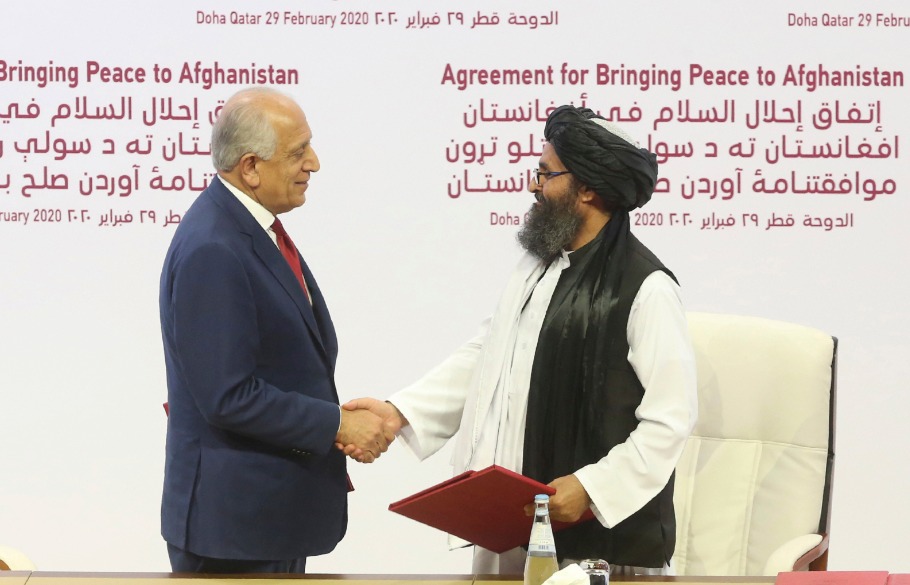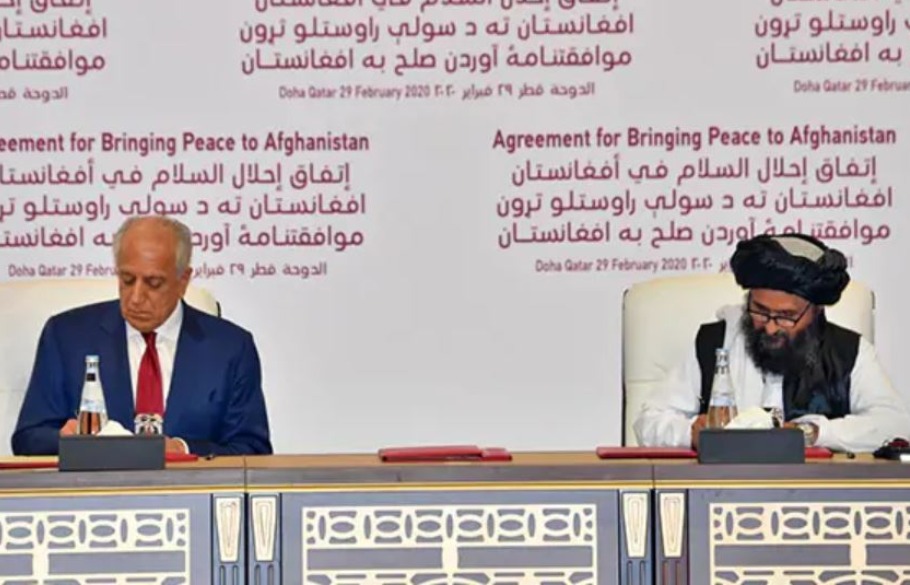
The US misjudged the Taliban, and lost the plot in Afghanistan
The United States has signed a peace deal with the Taliban, after a 19-year war of attrition. So, who’s the winner? Obviously it is the Taliban. The US, leading a pack of major military powers, has been unable to remove from the equation the Islamist group and the former Afghan ruling party.

The United States has signed a peace deal with the Taliban, after a 19-year war of attrition. So, who’s the winner? Obviously it is the Taliban. The US, leading a pack of major military powers, has been unable to remove from the equation the Islamist group and the former Afghan ruling party.
But you wouldn’t get this conclusion from most media narratives which would have you believe that Washington has voluntarily decided to back off in the interests of peace.
The fact of the matter is though the international coalition managed to dislodge the Taliban government in Kabul days after the attack on Afghanistan in 2001, it could never seize total control of the country.
Related news: US, Taliban sign historic deal, aim to withdraw all forces in 14 months
From all accounts, the US-backed Hamid Karzai government and those that followed, barely had control over the capital Kabul, besides a few other regions of the country totalling around 56 percent. Nearly 15 percent was dominated by the Taliban while 30 percent of the country was contested and in a perpetual state of flux.
The Afghans proved once again their allergy to any sort of foreign occupation. In the 19th and early 20th century, they drove out the British on three occasions, the last time was in 1919. Later, in 1989 they sent the Soviets packing. And, now, the world’s sole superpower has been shown the door.
US President Donald Trump is doing no great favour to the Taliban by withdrawing – the US had reached a dead end and the Afghan project was draining out its economy at a time when the world has been in financial distress over the last decade. The Taliban effectively wore out the US-led military occupation in Afghanistan.
You can't add multiple timelines in the same post, page or custom post type.
And, one may recall, the Soviets paid an even heavier price for their occupation of Afghanistan. The economy of the once feared superpower collapsed and it could never recover from it, eventually disintegrating.
The latest invader United States, theoretically, should have had it easy. The world’s sympathy was with Americans after the 9/11 attacks. Al-Qaeda chief Osama bin Laden, the mastermind behind the attacks, was based in Afghanistan and a close friend of the Taliban leadership. The refusal by its top leader Mullah Omar to hand over bin Laden provoked the US and its allies to target Kabul.
The Taliban government had also angered most of the world by some of its audacious actions, like the destruction of the world heritage Bamyan Buddha statues and its despicable treatment of women and minority sects including those within the Muslim community itself like the Hazaras. It seemed that Afghanistan was regressing rapidly under Taliban rule when the US-led coalition descended on the country and ousted the Islamist regime.
Related news: Afghans mark start of week-long partial truce amid isolated attacks
The first and probably the biggest mistake of the then Bush administration was the inexplicable move to invade Iraq as well in March 2003, just over a year after the invasion of Afghanistan. Washington squandered the momentum it was gaining in Afghanistan. Instead of helping to consolidate the new government in Kabul after the Taliban’s ouster, it got dragged into the Iraqi quagmire of its own doing. In the process, it lost focus in Afghanistan.
If the attack on Afghanistan was fully supported by most of the world, the subsequent invasion of Iraq was frowned upon even by some of its closest allies like France. By default, it resulted in the loosening of commitment towards establishing a democratic government in Kabul.
More importantly, the Iraq adventure completely diluted the sympathy the world had for the US after the 9/11 attacks.

The other big reason for the US to flounder in Afghanistan was the dubious role played by its long-term ally, Pakistan, which was unable to cut off ties with the Taliban.
For Washington, after the 9/11 attacks, it shifted the Taliban from the erstwhile position as a friend to that of an enemy in a matter of days.
The Taliban, incidentally, along with groups like the al-Qaeda, was a big beneficiary of US assistance during its fight against Soviet occupation. The Mujahidin, or freedom fighters, were given funds, armaments and training by the Americans in camps on the Pakistan side of the border with the help of Saudi Arabia.
Related news: US prepares to sign withdrawal deal with Taliban on February 29
From the Mujahidin emerged the Taliban and the al-Qaeda. The Taliban, in particular, was formed and knitted together as a formidable group by Pakistan’s ISI (Inter-Services Intelligence). The links between the Taliban and the Pakistan state were therefore deep-rooted.
When the US in late 2001 overnight asked Pervez Musharraf to break ties with the Taliban and other allied groups, the then Pakistan president made a public show of adhering to the US missive. But, in reality, it was not possible as the Taliban and Pakistan forces shared an organic relationship.
Over the years, despite the US requests, diktats and even cutting pf aid, Islamabad paid no heed. The Taliban therefore always had a safety net along the Afghan-Pakistan border, across the Hindu Kush Mountains.
Related news: US intends to announce withdrawal of 4,000 troops from Afghanistan next week
The US, first under George W Bush and later under Barack Obama, used drones in an attempt to neutralise the Taliban. But, they resulted in the death of civilians (around 300) on both sides of the border angering people in the two countries and helping in massing even more ground support for the Taliban. The drone strikes largely proved to be a self-defeating exercise despite the claim of around 5000 deaths of suspected militants.
Militarily, though the US had the world’s top equipment it huffed and puffed to push back the Taliban but in vain. Meanwhile the coalition, including the US, over the years reduced their troop presence on ground, indicating a mission that had gone sour. The British left in toto in October 2014.
Related news: Uncle Sam messed up Afghanistan; now wants others to clean it up
After 19 years of conflict, the moot question is whether the February 29 peace deal will make a difference to Afghanistan. Though the Taliban has promised to return in a more liberal avatar this is just a promise which need not be necessarily honoured. Initially, it is bound to be a coalition of some kind with the government in Kabul working in tandem with the Taliban, after micro-differences are ironed out.
But if history were to repeat itself, it is but a matter of time before the Taliban asserts itself and dominate any future Afghan government. For the US, when that happens, the defeat will be complete.


